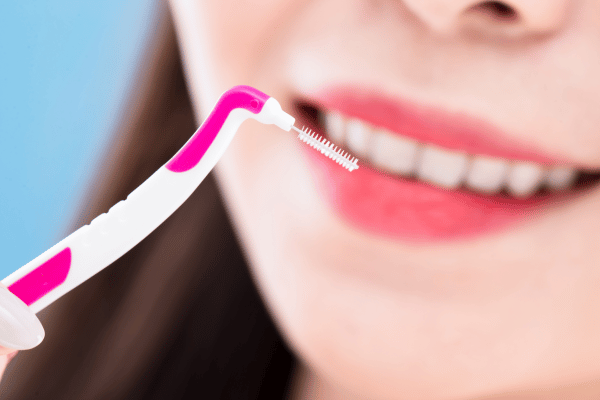Oral health is a critical component of overall well-being, yet it often doesn’t receive the attention it deserves. A robust oral care routine can prevent a multitude of dental issues, including gum disease, tooth decay, and bad breath, which, if left unchecked, can lead to more serious health problems. In this guide, we explore five essential products that should be part of everyone’s oral hygiene regimen. These tools are not just about maintaining a bright smile; they’re about ensuring your mouth stays healthy, reflecting positively on your overall health.
1. Electric Toothbrush: Elevating Your Brushing Game

The first step in any oral care routine is thorough brushing. An electric toothbrush can enhance this basic practice by providing consistent motion and pressure, often leading to a more effective clean than manual brushing. Features like built-in timers ensure you brush adequately, while various brushing modes cater to needs such as gum care and sensitivity. Opting for an electric toothbrush could be a significant upgrade for your oral health, offering a deeper clean with less effort.
- Consistent Cleaning Power: Unlike manual brushing, electric toothbrushes offer a constant level of power and a high number of brush strokes per minute, ensuring a more thorough clean every time.
- Pressure Sensors: To protect your gums and enamel, many electric toothbrushes come with sensors that alert you when you’re brushing too hard, preventing potential damage.
- Improved Plaque Removal: Studies have shown that electric toothbrushes can remove significantly more plaque compared to manual toothbrushes, reducing the risk of gum disease.
- Long-term Oral Health Benefits: Regular use of an electric toothbrush can lead to healthier gums, reduced decay, and a brighter smile over time.
2. Interdental Brushes: The Gap Bridger

While flossing (traditional or with a water flosser) is effective for cleaning between your teeth, interdental brushes take this a step further, especially for those with wider gaps, braces, or dental implants. These small brushes are designed to clean between teeth, around braces, and along the gum line, removing plaque and debris that other tools might miss. Their use can significantly reduce the risk of gum disease and tooth decay by targeting areas that are challenging to reach with standard floss or toothbrushes.
Integrating Interdental Brushes into Your Routine
Incorporating interdental brushes into your oral care routine doesn’t have to be complicated. Start by selecting the correct size for your gaps (your dentist can help with this) and gently insert the brush between your teeth, moving it back and forth a few times. Use it once a day, ideally in the evening, to ensure any food particles and plaque accumulated throughout the day are removed. Regular use can lead to healthier gums and a cleaner mouth overall.
Water Flosser: A Modern Take on Flossing

The Benefits of Water Flossing
Even the most advanced toothbrushes can’t reach every nook and cranny between teeth and under the gumline. This is where water flossers come in, using a stream of water to gently remove food particles and plaque from hard-to-reach places. Ideal for those with braces or other dental work, water flossers provide a comfortable and efficient alternative to traditional floss, potentially improving gum health and reducing plaque.
- Improves Oral Hygiene: Water flossers use a high-pressure stream of water to dislodge food particles and plaque from between teeth and under the gumline, areas often missed by traditional toothbrushing. This method enhances overall oral cleanliness and can contribute to a healthier mouth.
- Ideal for Dental Work and Sensitive Gums: For individuals with braces, dental implants, or sensitive gums, water flossing offers a pain-free alternative to string floss. Its gentle cleaning action is effective without causing discomfort or irritation, making daily oral care easier and more pleasant.
- Reduces Risk of Gum Disease and Cavities: Regular use of a water flosser can significantly reduce the likelihood of developing gum disease and cavities. By thoroughly removing plaque buildup and food residues, it helps maintain the health of the gumline and prevents the formation of tooth decay.
4. Fluoride Toothpaste: The Daily Defender
The Importance of Fluoride
Fluoride plays a key role in fighting tooth decay by strengthening tooth enamel and reducing the ability of bacteria to produce harmful acids. A fluoride toothpaste should be a staple in everyone’s oral hygiene kit, offering daily protection against cavities. When selecting a toothpaste, look for one that meets your specific oral health needs, whether it’s for sensitive teeth, whitening, or gum health.
5. Tongue Scraper: For Fresh Breath and More
Why Scrape Your Tongue?
A tongue scraper might seem like a simple tool, but it’s effective in removing bacteria and food debris from the surface of the tongue. Regular use can not only lead to fresher breath but also contribute to a healthier oral environment by reducing the overall bacterial load. This simple addition to your morning and evening routine can make a significant difference in your oral hygiene.
6. Mouthwash: The Finishing Touch

Rounding off our list of must-haves is mouthwash. An antiseptic or fluoride mouthwash can reach areas that brushing and flossing might miss, offering an additional layer of protection against bacteria, plaque, and cavities. It’s also great for keeping your breath fresh throughout the day. Consider incorporating mouthwash into your routine for that extra clean feeling after brushing and flossing.
- Extra Protection Against Oral Diseases: Mouthwash provides an additional defense against gum disease, plaque, and cavities by targeting bacteria and areas missed by brushing and flossing.
- Freshens Breath Instantly: A quick rinse with mouthwash can eliminate bad breath-causing bacteria, ensuring your breath stays fresh longer.
- Strengthens Teeth: Fluoride mouthwashes help in remineralizing teeth, making them stronger and more resistant to decay.
Dental Probiotics: The Future of Oral Health
The concept of probiotics for gut health is widely recognized, but the use of probiotics for oral health is a relatively new and exciting development. Dental probiotics contain beneficial bacteria that can help balance the oral microbiome, potentially reducing harmful bacteria that cause bad breath, tooth decay, and gum disease. By promoting a healthier balance of bacteria in the mouth, dental probiotics can be a proactive approach to maintaining oral health.
Incorporating Dental Probiotics into Your Care Routine
Dental probiotics are available in various forms, including lozenges, gums, and mouthwashes. Incorporating them into your daily routine can be as simple as replacing your regular mouthwash or chewing gum with a probiotic alternative. As with any supplement, it’s wise to consult with your dentist or healthcare provider before starting, especially if you have underlying health conditions or are taking other medications.

Summing Up
Incorporating these five essential products into your oral care routine can significantly improve your oral health and hygiene. While specific product choices will depend on individual needs and preferences, the types of products mentioned are universally beneficial. Remember, a comprehensive oral hygiene routine is about more than just keeping your smile bright; it’s a crucial part of maintaining your overall health.
FAQs
1. Can I replace flossing with a water flosser?
While a water flosser is an excellent tool for enhancing your oral hygiene routine, especially for cleaning around braces and dental implants, it should not be considered a complete replacement for traditional flossing.
2. How often should I replace my toothbrush or electric toothbrush head?
Dental professionals recommend replacing your toothbrush or electric toothbrush head every 3 to 4 months, or sooner if the bristles become frayed. Regular replacement is crucial for maintaining the effectiveness of your brushing, as worn-out bristles cannot clean teeth as thoroughly and may harbor harmful bacteria.
3. How often should I use a mouthwash in my oral care routine?
Incorporating mouthwash into your oral care routine can provide additional benefits such as reducing bacteria, freshening breath, and potentially fighting plaque. Most dental professionals recommend using mouthwash once or twice a day after brushing and flossing
4. How do I choose the right interdental brush size?
Choosing the right size for an interdental brush is crucial for its effectiveness and to prevent gum damage. The best way to find the appropriate size is to ask your dentist for a recommendation based on the sizes of the gaps between your teeth.
